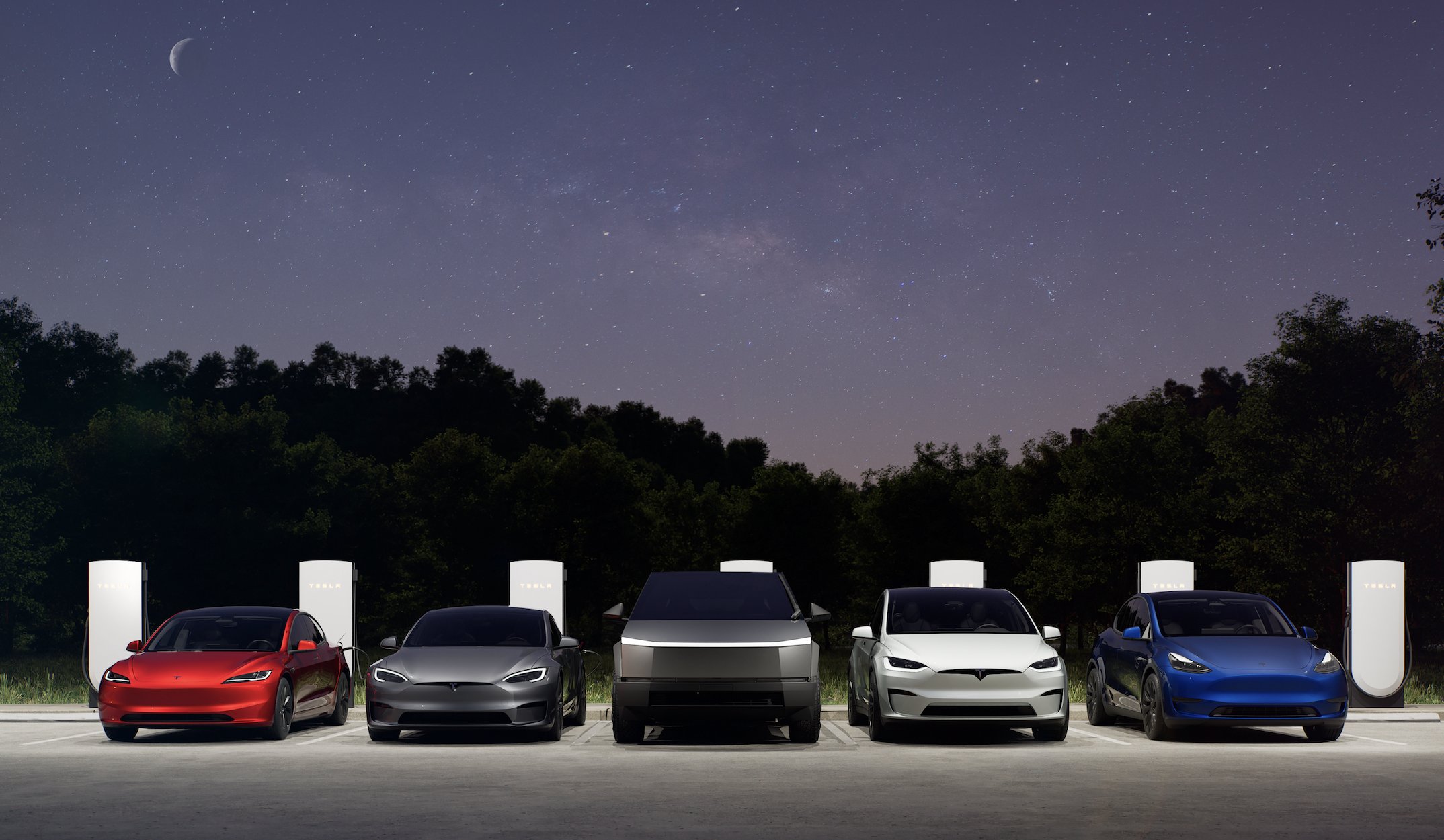Tesla's resilient brand loyalty proves good products still drive sales (Op-Ed)

09/06/2024 01:35 PM
A quick look at the electric vehicle community’s sentiments about Elon Musk on X and platforms like Reddit would suggest that the CEO’s increasing political nature has now become Tesla’s largest liability. Yet as per S&P Mobility, Tesla’s brand loyalty is still incredibly strong. This suggests that even in today’s social media-driven landscape, good products still drive sales and loyalty.
Tesla’s resilient brand loyalty
In its post, S&P Mobility noted that among individual brands, “Tesla continues its run as the leader in brand loyalty with a rate of 67.8% for the first half of 2024.” Vince Palomarez, associate director of loyalty product management at S&P Global Mobility, also noted that Tesla’s customer loyalty has remained constant.
“Tesla has historically been a brand with strong loyal ties among their consumer base, despite a limited product portfolio. Changes in BEV prioritization among other OEMs, along with Tesla’s directive to cut pricing when needed, has kept households from defecting,” Palomarez noted.
S&P Mobility’s findings are extremely interesting as social media trends and media reports have practically been unanimous about the idea that Elon Musk has become poison to Tesla’s brand. As per Palomarez, however, the data does not support this narrative–at least for now.
“We can only report on what we see in the data. In this instance, there is some decline in Tesla’s loyalty for the first half of 2024 vs. 2023; however, it is below one percentage point,” he said, noting that Tesla is still clearly beating other brands. “The brand still remains the industry leader in brand loyalty by a healthy margin. For comparison’s sake, the industry brand loyalty average stands at 52.5% for H1 2024 and no other brand has a loyalty rate above 60%,” the S&P Global Mobility associate director noted.
Good products drive sales and loyalty
Perhaps one of the reasons why Tesla still sees strong brand loyalty among consumers is the fact that the company produces good products, from its electric vehicles to its battery storage systems. Even if Tesla’s vehicles have been beaten by other competitors when it comes to range, efficiency, and 0-60 mph times, the company’s vehicles offer the best value for their price.
A good example of this is the re-engineered Tesla Model 3 Performance, which is an absolute steal at $55,000 for the performance, tech, safety, comfort, and features that it offers. The same is true for the Tesla Model Y, which has effectively outsold its rivals in the all-electric crossover SUV segment despite having the same exterior design since its March 2019 unveiling event.
Consumers gravitate towards good products, leadership be damned. A look at the strong sales in the United States of the Volkswagen Beetle Type 1, a vehicle whose creation was driven by Adolf Hitler’s desire for a people’s car, proves this. The Volkswagen Beetle Type 1 became extremely popular in the United States in the 1960s, less than two decades after World War 2. All in all, almost 5 million Beetle Type 1 units were sold in the United States out of a total of 21.5 million cars worldwide. Part of the reason behind the Beetle Type 1’s success in the U.S. is due to the fact that it is just a great, bang-for-the-buck car.
The list goes on. Ford’s founder, Henry Ford, held deeply antisemitic views. He even brought a local newspaper to publish his own anti-Semitic writings. Ford has thrived despite its founder’s questionable ethics, and the company still produces the best-selling car in the United States today–the F-Series pickup trucks. Similar to the Beetle Type 1, few pickup trucks could hold a candle to the utility and pedigree of Ford’s F-series.
Consumer brands like Adidas and Puma had founders who supported the Nazi party during its rise in the 1930s, but the brand has weathered this and remained popular until today. Most amusing is the Reimann family, which owns a controlling stake in JAB Holdings. In 2019, it was revealed that the Reimann family had close ties to the Nazi party. Despite this, one cannot deny the fact that JAB Holdings’ brands, which include Krispy Kreme, Jimmy Choo, and Pret-A-Manger, are still loved by consumers because of their quality and consumer appeal.
Elon Musk’s tweets
There is no doubt that since acquiring Twitter, Elon Musk has become far more willing to share his views on a number of issues, from US and international politics to gender ideology. There is also no doubt that the negative slant in media against Musk and his companies is at an all-time high. The Guardian, just last week, published a guide on how to “rein in” Elon Musk by boycotting Tesla, having foreign governments threaten to arrest Musk, suing the CEO under Section Five of the FTC Act, and terminating contracts with SpaceX.
Musk has always attracted negative media attention, but not at this level.
Considering the nature of Musk’s posts, it is no surprise that some consumers would indeed not purchase Teslas due to the CEO’s social media posts. But ultimately, sales and brand loyalty are a game of numbers. There is a vocal portion of the car-buying community who are extremely open about not purchasing Teslas due to their dislike or hatred of Musk. However, the lines between the EV sector and the greater automotive market are growing thinner. Thus, more regular car buyers may simply be looking at Teslas because they need a car. For such consumers, the politics of Tesla’s CEO may not be a consideration at all.
Don’t hesitate to contact us with news tips. Just send a message to simon@teslarati.com to give us a heads up.
The post Tesla's resilient brand loyalty proves good products still drive sales (Op-Ed) appeared first on TESLARATI.


